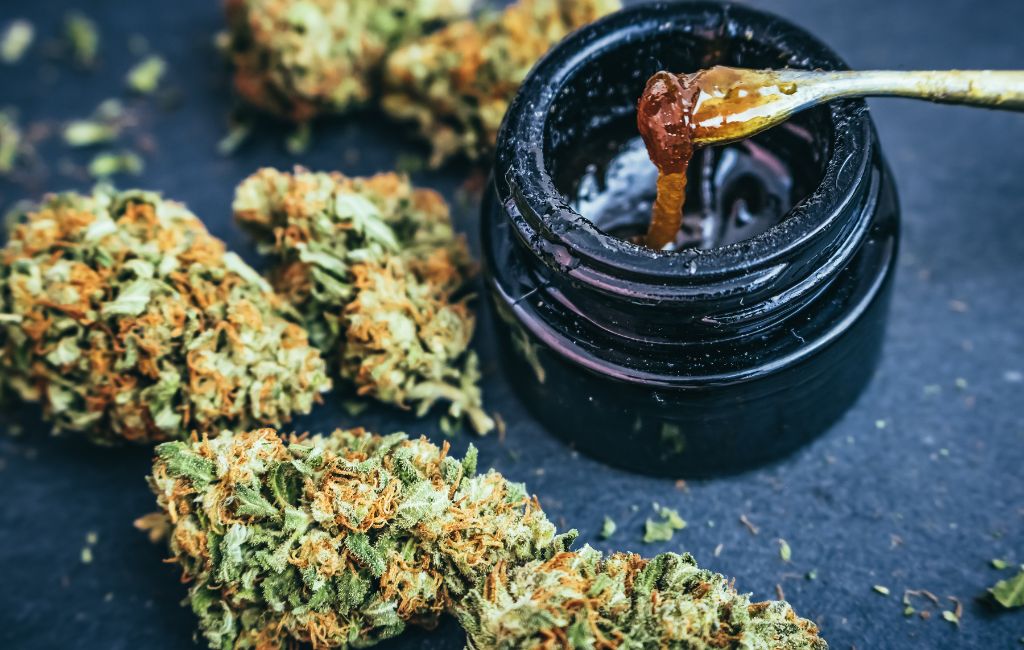THCa Flower: Nature’s Healing Power
In recent years, the cannabis plant has gained significant attention for its potential therapeutic benefits. Among the various compounds found in cannabis, THCa (tetrahydrocannabinolic acid) has emerged as a promising candidate for natural healing. This article explores the properties, benefits, and applications of THCa flower, shedding light on its potential to improve health and well-being.
Understanding THCa
THCa is a non-psychoactive cannabinoid found in raw and live cannabis plants. Unlike THC (tetrahydrocannabinol), which is known for its psychoactive effects, THCa does not produce a “high.” When cannabis is heated through smoking, vaping, or cooking, THCa converts to THC through a process called decarboxylation. This transformation is what gives THC its psychoactive properties.
Properties of THCa
THCa is known for its anti-inflammatory, neuroprotective, and anti-emetic properties. These attributes make it a valuable compound for various medical applications. Research has shown that THCa can interact with the body’s endocannabinoid system, which plays a crucial role in maintaining homeostasis.
Health Benefits of THCa Flower
THCa flower offers a range of potential health benefits, making it an attractive option for those seeking natural remedies. Some of the key benefits include:
- Anti-inflammatory Effects: THCa has been shown to reduce inflammation, which can help alleviate symptoms of conditions such as arthritis and inflammatory bowel disease.
- Neuroprotective Properties: Studies suggest that THCa may protect brain cells from damage, potentially offering benefits for neurodegenerative diseases like Alzheimer’s and Parkinson’s.
- Anti-emetic Benefits: THCa can help reduce nausea and vomiting, making it useful for patients undergoing chemotherapy or those with chronic conditions that cause nausea.
- Pain Relief: THCa’s anti-inflammatory properties can also contribute to pain relief, providing an alternative to traditional pain medications.
Case Studies and Research
Several case studies and research projects have highlighted the potential of THCa flower in medical applications. For instance, a study published in the British Journal of Pharmacology found that THCa exhibited significant anti-inflammatory effects in animal models. Another study conducted by researchers at the University of Guelph demonstrated THCa’s neuroprotective properties, suggesting its potential in treating neurodegenerative diseases.
Applications of THCa Flower
THCa flower can be used in various forms to harness its therapeutic benefits. Some common applications include:
- Raw Consumption: Consuming raw cannabis leaves or flowers in smoothies or salads can provide a direct source of THCa without the psychoactive effects of THC.
- Tinctures and Oils: THCa can be extracted and used in tinctures or oils, offering a convenient way to incorporate it into daily routines.
- Topicals: THCa-infused creams and balms can be applied directly to the skin for localized relief from pain and inflammation.
- Juicing: Juicing raw cannabis leaves is another method to consume THCa, providing a nutrient-rich beverage with potential health benefits.
Legal Considerations
The legal status of THCa varies by region. In some areas, THCa is considered legal as long as it is not decarboxylated into THC. It is important to research and understand the regulations in your area before using or purchasing THCa products.
Personal Stories and Testimonials
Many individuals have shared their positive experiences with THCa flower. For example, a patient with chronic arthritis reported significant pain relief and improved mobility after incorporating THCa tinctures into their daily regimen. Another individual with Parkinson’s disease noted a reduction in tremors and improved overall well-being after using THCa-infused topicals.
Statistics and Market Trends
The market for THCa products is growing rapidly. According to a report by Grand View Research, the global cannabis market is expected to reach $73.6 billion by 2027, with a significant portion attributed to non-psychoactive cannabinoids like THCa. This growth reflects increasing consumer interest in natural and alternative therapies.
Conclusion
THCa flower represents a promising avenue for natural healing, offering a range of potential health benefits without the psychoactive effects of THC. From reducing inflammation and pain to protecting brain cells and alleviating nausea, THCa has shown significant therapeutic potential. As research continues to uncover its properties and applications, THCa flower may become an increasingly popular choice for those seeking natural remedies.
